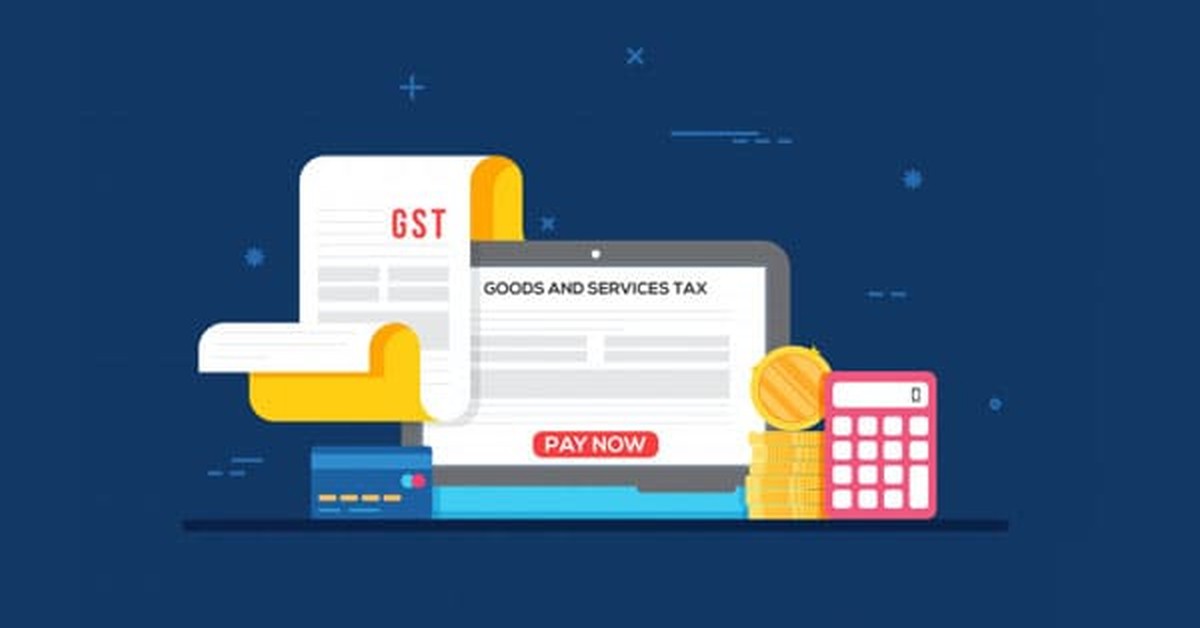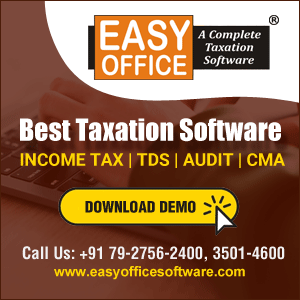Background
Under GST law, input tax credit [ITC] can be availed by the registered person on the inward supplies of goods/services used/intend to be used in course of business of making taxable supplies/zero rated supplies. ITC can be availed subject to satisfaction of conditions set out in section 16(2) namely receipt of goods/services, receipt of vendor invoices, tax paid to Govt through cash/credit, return furnished by recipient. Additional conditions for availment of credit were set out namely the details of the invoice/ debit note referred to above should be uploaded by the supplier in his GSTR-1 and the same is reflected in recipients Form GSTR-2B (w.e.f. 01.01.2022); Also the credit should not be restricted in GSTR-2B (Notified w.e.f. 1st October 2022).
However the revenue department has been seen to be sending notices to assesses citing excess availment of ITC in GSTR-3B as compared to ITC available in GSTR-2A for FY 2017-18 onwards. The latest circular 183/15/2022-GST has clarifiedto deal with difference in Input Tax Credit (ITC) availed in FORM GSTR-3B as compared to that detailed in FORM GSTR-2A for FY 2017-18 and 2018-19. Also sets out where difference between the ITC claimed in FORM GSTR-3B and that available in FORM GSTR 2A is there confirm supplies made+ taxes paid by vendor by getting CA/CMA certificate or vendor declaration respectively, based on monetary limits of ITC.
In a recent development, before Karnataka High Court in M/s Wipro Limited vs The Assistant Commissioner Of Central Taxes and Ors Writ Petition No.16175 of 2022(T-RES) writ was filed by the petitioner to get access to the GST portal in order to the rectify GSTR-1 uploaded between FY 2017-18 and 2018-19 with respect to invoices issued to the recipient so as to enable the recipient to take credit of tax paid to supplier.
While supplies were made by supplier Wipro to Recipient, issue was that the GSTIN Number mentioned in the invoices has been incorrectly shown as that of a completely different and independent juristic and legal entity.

It was held by High Court single judge bench as follows
…… having regard to the language employed in the Circular, which contemplates rectification of the bonafide and inadvertent mistakes committed by the persons at the time of filing of Forms and submitting Returns, in the peculiar and special facts and circumstances of the instant case, I am of the considered opinion that the error committed by the petitioner in showing the wrong GSTIN number in the Invoices which was carried forward in the relevant Forms as that of ABB India Limited instead of M/s.ABB Global Industries and Services Private Limited, is clearly a bonafide error, which has occurred due to bonafide reasons, unavoidable circumstances, sufficient cause and consequently, the aforesaid Circular would be directly and squarely applicable to the facts of the instant case.
7. A perusal of the aforesaid Circular also indicates that the procedure to be followed in such cases has been prescribed at paragraph-4. In addition to the Circular, the petitioner has also filed an Affidavit satisfying the conditions stipulated in paragraph – 4.1.1 of the Circular, enclosing the details of the Invoices issued by the petitioner to the 5th respondent. ……….
8. Under these circumstances, I am of the considered opinion that it would be just and proper to dispose of this petition directing the revenue to follow the procedure prescribed in the Circular and apply the said Circular to the facts of the instant case of the petitioner and their transactions for the years 2017-18, 2018-19 and 2019-20. ………I am of the view that by adopting a justice-oriented approach, the petitioner would be entitled to the benefit of the Circular for the year 2019-20 also.
In light of this circular and the Wipro decision supra the paper writer has examined implications for the assessees.
Circular no.183/15/2022-GST
The circular has set out as follows: Relevant extracts
- Various representations from the trade as well as the tax authorities, seeking clarification on dealing with discrepancies between the amount of ITC availed by the registered persons in GSTR-3B and the amount as available in FORM GSTR-2A during FY 2017-18 and FY 2018-19.
|
S.No. |
Scenario |
Clarification |
|
a. |
Where the supplier has failed to file FORM GSTR-1 for a tax period but has filed the return in FORM GSTR-3B for said tax period, due to which the supplies made in the said tax period do not get reflected in FORM GSTR-2A of the recipients. |
In such cases, the difference in ITC claimed by the registered person in his return in FORM GSTR-3B and that available in FORM GSTR-2A may be handled by following the procedure provided in para 4 below. |
|
b. |
Where the supplier has filed FORM GSTR-1 as well as return in FORM GSTR-3B for a tax period, but has failed to report a particular supply in FORM GSTR-1, due to which the said supply does not get reflected in FORM GSTR-2A of the recipient. |
In such cases, the difference in ITC claimed by the registered person in his return in FORM GSTR-3B and that available in FORM GSTR-2A may be handled by following the procedure provided in para 4 below. |
|
c. |
Where supplies were made to a registered person and invoice is issued as per Rule 46 of CGST Rules containing GSTIN of the recipient, but supplier has wrongly reported the said supply as B2C supply, instead of B2B supply,inhis FORM GSTR-1, due to which the said supply does not get reflected in FORM GSTR-2A oft he said registered person. |
In such cases, the difference in ITC claimed by the registered person in his return in FORM GSTR-3B and that available in FORM GSTR-2A may be handled by following the procedure provided in para 4 below. |
|
d. |
Where the supplier has filed FORM GSTR-1 as well as return in FORM GSTR-3B for a tax period, but he has declared the supply with wrong GSTIN of the recipient in FORM GSTR-1. |
In such cases, the difference in ITC claimed by the registered person in his return inFORMGSTR-3B and that available in FORMGSTR-2A may In addition,the proper officer of the actual recipient shall intimate the concerned jurisdictional tax authority of the registered person, whose GSTIN has been mentioned wrongly, that ITC on those transactions is required to be disallowed, if claimed by such recipients in their FORM GSTR-3B. However, allowance of ITC to the actual recipient shall not depend on the completion of the action by the tax authority of such registered person,whose GSTIN has been mentioned wrongly, and such action will be pursued as an independent action |
4.1 In order to verify the condition of clause (c) of sub-section (2) of Section 16 of CGST Act that tax on the said supply has been paid by the supplier,the following action may be taken by the proper officer:
4.1.1 In case, where difference between the ITC claimed in FORM GSTR-3B and that available in FORM GSTR 2A of the registered person in respect of a supplier for the said financial year exceeds Rs 5 lakh, the proper officer shall ask the registered person to produce a certificate for the concerned supplier from the Chartered Accountant (CA) or the CostAccountant (CMA), certifying that supplies in respect of the said invoices of supplier have actually been made by the supplier to the said registered person and the tax on such supplies has been paid by the said supplier in his return in FORM GSTR 3B. Certificate issued by CA or CMA shall contain UDIN.UDIN of the certificate issued by CAs can be verified from ICAI website https://udin.icai.org/search-udin and that issued by CMAs can be verified from ICMA Iwebsitehttps://eicmai.in/udin/VerifyUDIN.aspx.
4.1.2 In cases, where difference between the ITC claimed in FORM GSTR-3B and that available in FORM GSTR 2A of the registered person in respect of a supplier for the said financial year is upto Rs 5 lakh,the proper officer shall ask the claimant to produce a certificate from the concerned supplier to the effect that said supplies have actually been made by him to the said registered person and the tax on said supplies has been paid by the said supplier in his return in FORM GSTR 3B.
…………………..
5. It may also be noted that the clarifications given hereunder are case-specific and are applicable to the bonafide errors committed in reporting during FY 2017-18 and 2018-19. Further, these guidelines are clarificatory in nature and may be applied as per the actual facts and circumstances of each case and shall not be used in the interpretation of the provisions of law.
6. These instructions will apply only to the ongoing proceedings in scrutiny/audit/investigation,etc. for FY 2017-18 and 2018-19 and not to the completed proceedings. However, these instructions will apply in those cases for FY 2017-18 and 2018-19 where any adjudication or appeal proceedings are still pending.
Comments on the circular
- Assessee can claim the shelter of beneficial aspects of the circular issued especially at para 4.
- Based on advise of competent practitioners, a practice was being followed by taxpayers under GST for past few years, whereby CA Certificate or Vendors wise Declarations/Certificate with invoice-wise details of taxes paid were being collected by taxpayers from vendors wherever the credit was not being reflected in GSTR 2A. This was being done to ensure dispute avoidance with dept. The circular has only validated the correctness of this approach.
- It would do good to remember that circulars are binding on the dept officers. Similarly held in Dhiren Chemicals[2002 (143) ELT 19 (SC)]
Legal Validity of demands made citing non-reflection of ITC in GSTR 2A
- ITC cannot be denied merely due to the non-reflection of invoices in GSTR-2A when all the conditions specified under Section 16 of CGST Act, 2017 have been satisfied.
- GSTR-2A cannot be taken as a basis to deny the ITC.
- The facility of GSTR-2A is ONLY for assesses facilitation and credit cannot be denied merely because it is not reflected in GSTR 2A.A similar view was expressed by the departmental press release dated 18th October 2018.
- “3. With taxpayers self-assessing and availing ITC through return in FORM GSTR-3B, the last date for availing ITC in relation to the said invoices issued by the corresponding supplier(s) during the period from July, 2017 to March, 2018 is the last date for the filing of such return for the month of September, 2018 i.e., 20th October, 2018.”
- It is clarified that the furnishing of outward details in FORM GSTR-1 by the corresponding supplier(s) and the facility to view the same in FORM GSTR-2A by the recipient is in the nature of taxpayer facilitation and does not impact the ability of the taxpayer to avail ITC on self-assessment basis in consonance with the provisions of section 16 of the Act. The apprehension that ITC can be availed only on the basis of reconciliation between FORM GSTR-2A and FORM GSTR-3B conducted before the due date for filing of return in FORM GSTR-3B for the month of September, 2018 is unfounded as the same exercise can be done thereafter also.”
- ITC is an indefeasible and vested right. Reliance can be placed in the case of Shabnam Petrofils Private Limited vs. Union of India (2019) 29 G.S.T.L. 225 (Guj.), Eicher Motors Ltd. Vs UOI – 1999 (106) ELT 3 (SC), Dai IchiKarkaria vs. UOI - 1999(112) ELT 353(SC).
- Even when the taxes are not paid by vendors on the subject invoices issued, in paper writer view, the substantial benefit of credit should not be denied due to the default [if any] by vendors. Further, the benefit of input tax credit cannot be denied to a bona fide purchaser, because of the default of the selling dealer.
- Similarly, provisions/ disputes in Central Excise, Service Tax and VAT have been held to be unreasonable in the past in the following decisions:
- Hon’ble Supreme Court in the case of Commissioner of Trade & Taxes, Delhi and others Vs. Arise India Limited and others [TS-2-SC-2018-VAT], has dismissed the Special Leave Petition filed by the Revenue against the decision of the Hon’ble High Court of Delhi in the case of Arise India Limited and others Vs. Commissioner of Trade & Taxes, Delhi and others [TS-314-HC-2017(Del)-VAT] (“Arise India case”). The Hon’ble High Court of Delhi held Section 9(2)(g) of Delhi VAT Act to the extent it disallows Input tax credit(“ITC”) to purchaser due to default of selling dealer in depositing tax, as violative of Articles 14 and 19(1)(g) of the Constitution of India.
- Kay Kay Industries (2013-TIOL-41-SC-CX). that the manufacturer cannot determine whether his supplier has discharged excise duty on the goods which are supplied to the manufacturer by him.
- Further, in case of M/s DY BeathelEnterprises(2021-TIOL-890-HC-MAD-GST) Madras HC quashes assessment orders reversing ITC availed by assessee on the ground that no proceedings were initiated against the sellers in the first place, for non-payment of tax and holds that the said orders suffer from fundamental flaws, condemns Revenue for not confronting the sellers and inaction against them in this regard.
- The above judgments have persuasive value under GST.
- There was no provision/condition set out in GST Act which required the credit to be reflected in GSTR 2A/2B till December 2021. Though Rule 36(4) in GST rules was put in place in October 2019 onwards to restrict claim credit based on GSTR 2A, this was challenged in various High Courts. Also this rule did not have any backing in GST law. It is well accepted that the rules are hand maidens subservient to the law and when there is no power in the law to restrict credit based on GSTR 2A the rule cannot over-ride the Act.
- The specific provision in section 16(2)(aa) which sets out condition that the details of the invoice/ debit note should be uploaded by the supplier in his GSTR-1 and the same is reflected in recipients Form GSTR-2B is introduced only w.e.f. 01.01.2022 and not prior to that date.
Action plan for taxpayers based on latest circular and Wipro decision supra
- Relying on circular assessees are suggested to ensure that wherever credit was not reflected in GSTR 2A due to reasons such as wrong GST number/disclosure as B2C supplies by vendor, get the CA certificate for amounts in excess of Rs 5 Lakhs. Vendor declaration when less than Rs. 5 Lakhs amounts.
- The same approach could be adopted not just for 2017-18 and 2018-19 but also for subsequent years till December 2021.
Conclusion
When assesses are facing dept objections/demands due to mismatch of ITC availed between GSTR 3B and 2A the shelter of circular can be taken and the procedure set out thereunder could be followed to ensure dispute mitigation.
The author can also be reached at roopa@hiregange.com









 CAclubindia
CAclubindia
